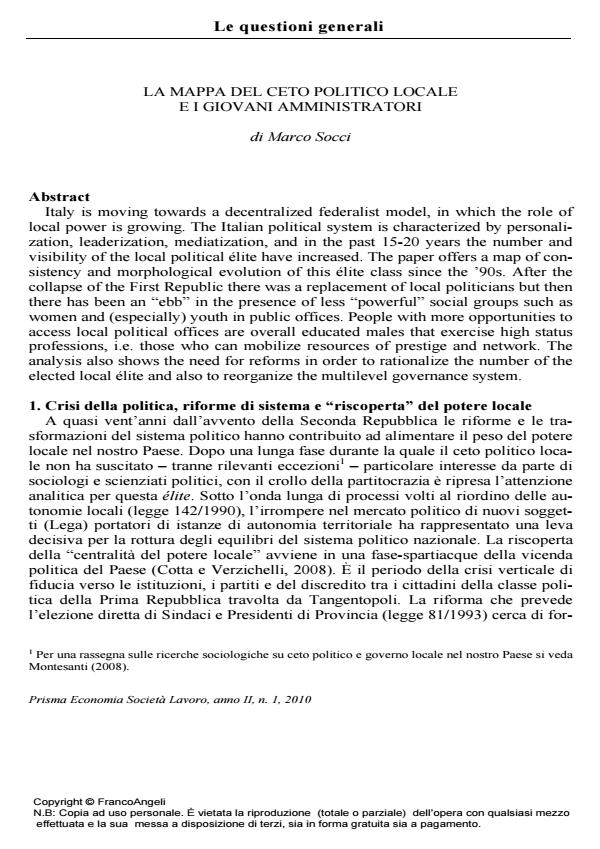La mappa del ceto politico locale e i giovani amministratori
Journal title PRISMA Economia - Società - Lavoro
Author/s Marco Socci
Publishing Year 2010 Issue 2010/1
Language Italian Pages 24 P. 18-41 File size 549 KB
DOI 10.3280/PRI2010-001004
DOI is like a bar code for intellectual property: to have more infomation
click here
Below, you can see the article first page
If you want to buy this article in PDF format, you can do it, following the instructions to buy download credits

FrancoAngeli is member of Publishers International Linking Association, Inc (PILA), a not-for-profit association which run the CrossRef service enabling links to and from online scholarly content.
Italy is moving towards a decentralized federalist model, in which the role of local power is growing. The Italian political system is characterized by personalization, leaderization, mediatization, and in the past 15-20 years the number and visibility of the local political élite have increased. The paper offers a map of consistency and morphological evolution of this élite class since the ’90s. After the collapse of the First Republic there was a replacement of local politicians but then there has been an "ebb" in the presence of less "powerful" social groups such as women and (especially) youth in public offices. People with more opportunities to access local political offices are overall educated males that exercise high status professions, i.e. those who can mobilize resources of prestige and network. The analysis also shows the need for reforms in order to rationalize the number of the elected local élite and also to reorganize the multilevel governance system.
Marco Socci, La mappa del ceto politico locale e i giovani amministratori in "PRISMA Economia - Società - Lavoro" 1/2010, pp 18-41, DOI: 10.3280/PRI2010-001004